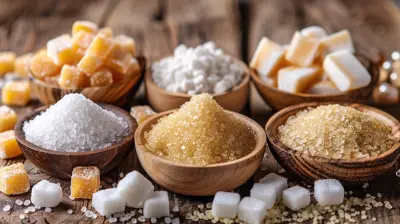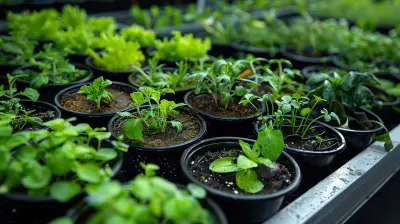Healthy Fats for Kids: Why They're Critical for Development
30 September 2025
When it comes to feeding kids, parents often get bombarded with advice—some valid, some downright confusing. One of the biggest misconceptions? That all fats are bad. Truth be told, healthy fats are not only safe but absolutely essential for children's growth and development.
If you're still steering clear of fats, it's time for a mindset shift. The right kinds of fats help support brain function, immune health, and even emotional well-being. So, let’s dive into why healthy fats matter for kids and how you can incorporate them into their diet without the fuss. 
Why Are Healthy Fats So Important for Kids?
Children are in a constant state of growth—physically, mentally, and emotionally. Their bodies need the right fuel to keep up, and healthy fats play a starring role.1. Brain Development
Did you know that about 60% of the brain is made up of fat? Yep! This means that kids need a steady supply of healthy fats to support cognitive growth, memory, and learning. Omega-3 fatty acids, in particular, are crucial for brain function. They help with focus, reduce hyperactivity, and even improve mood.2. Nutrient Absorption
Some vitamins—like A, D, E, and K—are fat-soluble. That means your child’s body can’t absorb them properly without the presence of fat. So, if they're munching on a bowl of veggies but skipping out on fats, they might not be getting all the nutrients they need.3. Energy Boost
Kids are little balls of energy. Whether they’re running around the park or simply going through a school day, their bodies require fuel. Healthy fats provide a slow-burning energy source, keeping them powered up for longer without the dreaded sugar crash.4. Stronger Immunity
Fats help strengthen the immune system by supporting cell function and reducing inflammation. This is especially important for growing kids, as their immune systems are still developing.5. Healthy Skin & Hair
Want your child to have glowing skin and strong, shiny hair? Healthy fats promote hydration and help maintain the skin’s protective barrier, preventing dryness and irritation.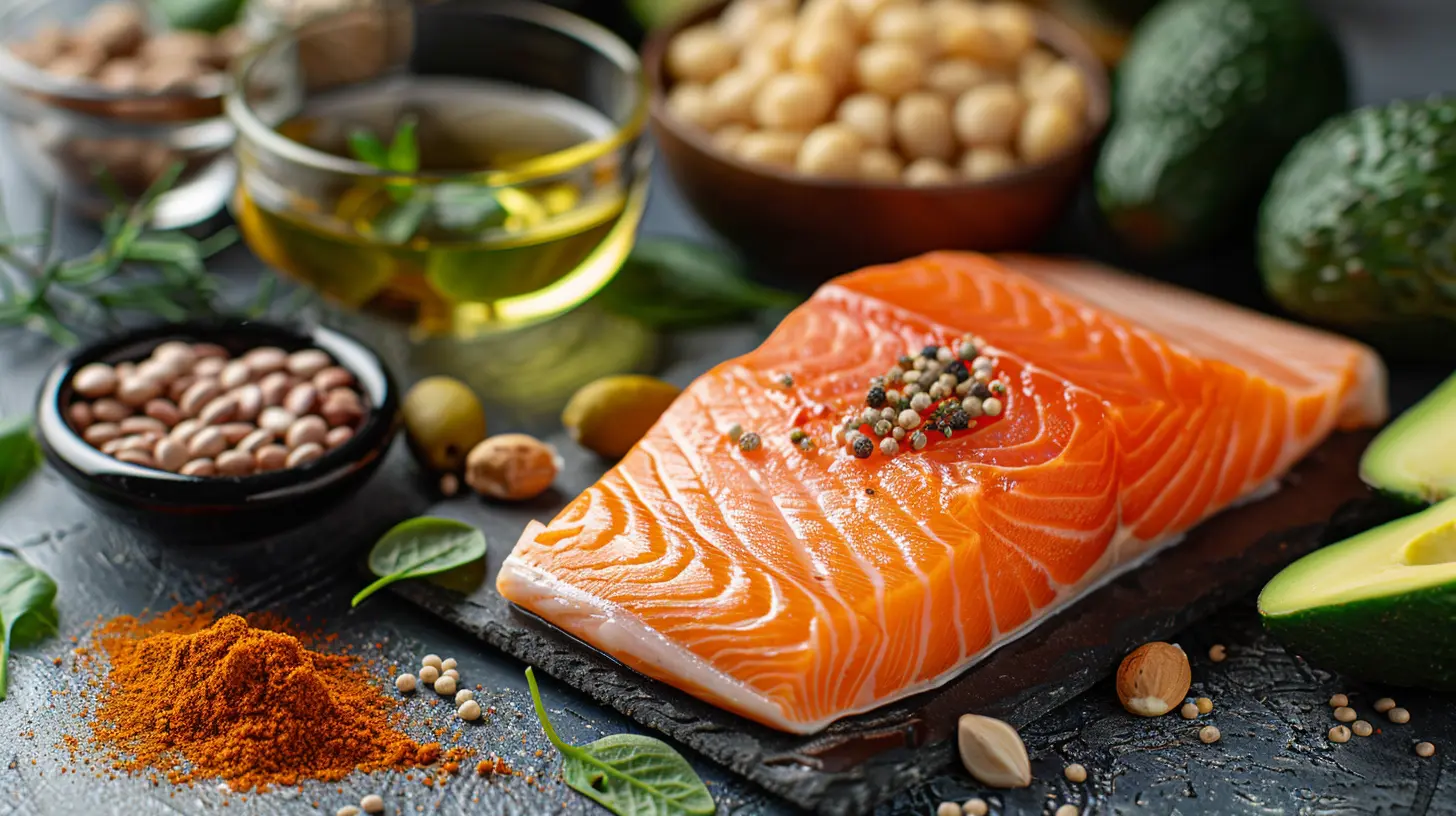
Best Sources of Healthy Fats for Kids
Now that we know why healthy fats are essential, let’s talk about where to get them. Not all fats are created equal, so it’s important to focus on the good ones.1. Avocados
Avocados aren’t just trendy; they’re packed with heart-healthy monounsaturated fats. Plus, they’re incredibly versatile—mash them up into guacamole, spread them on toast, or toss them into a smoothie.2. Nuts and Nut Butters
Almonds, cashews, walnuts, and peanuts are packed with good fats, protein, and fiber. Nut butters (without added sugars and hydrogenated oils) are great for kids—spread them on toast, mix them into oatmeal, or use them as a dip for apple slices.3. Fatty Fish
Salmon, sardines, and mackerel are excellent sources of omega-3 fatty acids, which are essential for brain development. If your child isn’t a fan of fish, try making fish patties, incorporating it into pasta, or opting for fish oil supplements.4. Olive Oil
A staple of the Mediterranean diet, olive oil is rich in monounsaturated fats. Drizzle it on roasted veggies, mix it into salad dressing, or use it for cooking instead of processed vegetable oils.5. Seeds (Chia, Flax, and Hemp)
Seeds are tiny but mighty! They’re packed with omega-3s, fiber, and protein. Add them to smoothies, yogurt, or oatmeal for an easy nutrition boost.6. Full-Fat Dairy
Whole milk, cheese, and yogurt provide kids with essential fats, calcium, and protein. While low-fat options have their place, young kids can benefit from full-fat dairy for proper growth and brain function.7. Eggs
Eggs are little nutrient powerhouses. The yolk, in particular, is rich in healthy fats, vitamin D, and choline—essential for brain development. Scramble them, boil them, or make an omelet with hidden veggies for an all-in-one meal.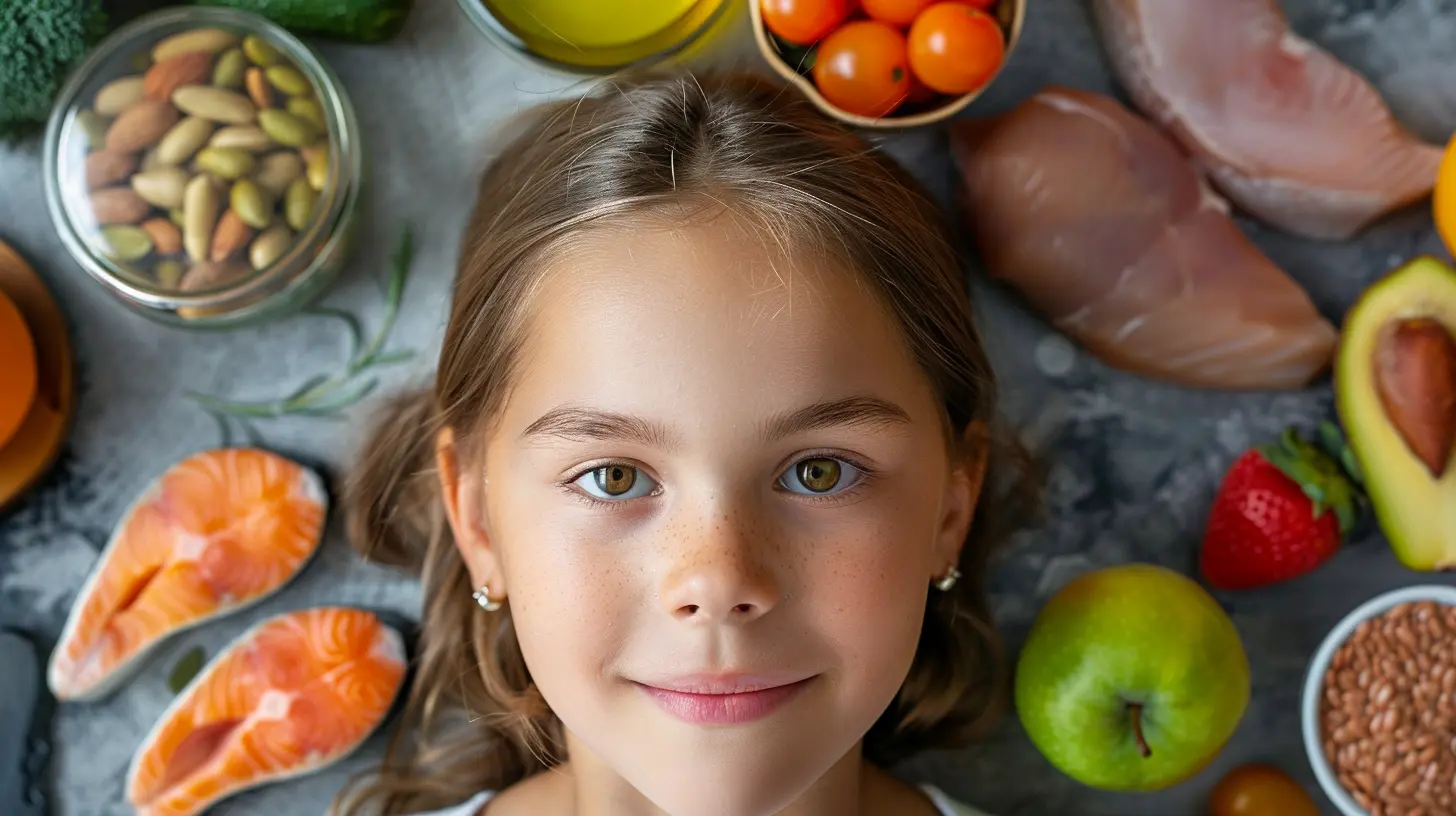
Fats to Avoid
While healthy fats are great for kids, there are some fats that should be limited or avoided whenever possible.1. Trans Fats
These are the worst offenders. Found in fried foods, margarine, and many processed snacks, trans fats can increase the risk of heart disease, inflammation, and obesity. Always check labels for partially hydrogenated oils and steer clear.2. Excessive Saturated Fats
A little bit of saturated fat (from sources like full-fat dairy and meats) is fine, but too much can contribute to health problems. Stick to unprocessed sources and balance them with healthier fats.3. Highly Processed Vegetable Oils
Corn, soybean, and canola oils are used heavily in processed foods. While not all vegetable oils are bad, highly refined ones can promote inflammation over time. Opt for olive oil, avocado oil, or coconut oil instead.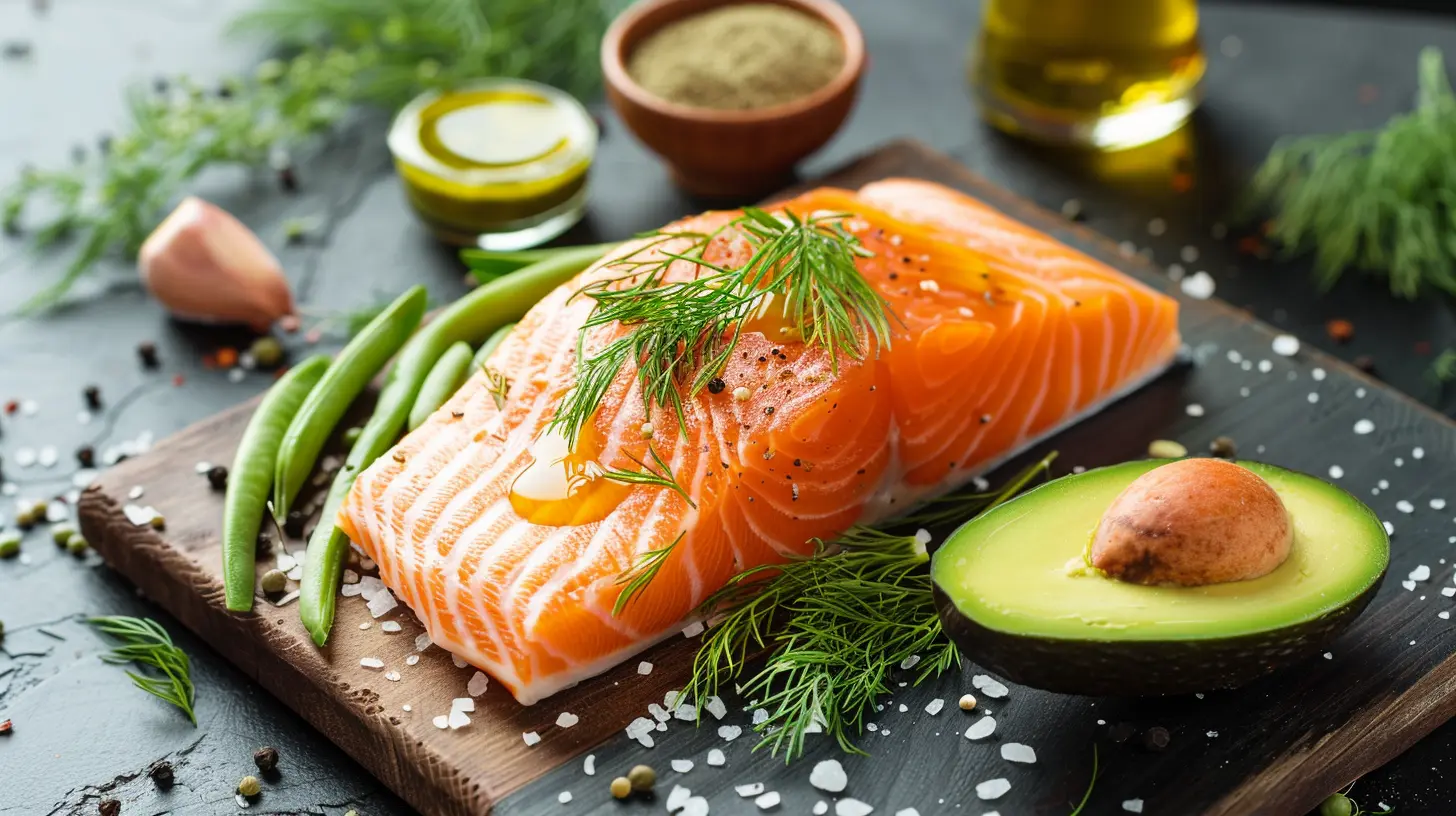
Easy Ways to Add Healthy Fats to Your Child’s Diet
Worried about getting enough healthy fats into your kid’s meals? Don’t stress—here are some simple swaps and ideas to make it happen effortlessly.✔ Make Smoothies: Blend avocados, full-fat yogurt, and chia seeds for a creamy, delicious smoothie.
✔ Use Healthy Cooking Oils: Cook with olive oil or coconut oil instead of processed vegetable oils.
✔ Swap Processed Snacks: Instead of chips, give your child nuts, seeds, or cheese with whole-grain crackers.
✔ Choose Full-Fat Dairy: Opt for whole milk, cheese, and yogurt to keep those good fats in.
✔ Incorporate Nuts & Seeds: Sprinkle flaxseeds in oatmeal, spread peanut butter on toast, or make homemade energy bars.
✔ Offer Fatty Fish Weekly: Try making salmon nuggets or mixing canned tuna into pasta for a tasty, healthy meal.
Final Thoughts
Healthy fats are a crucial part of your child’s diet, supporting everything from brain function to energy levels. Ditch the fear of fats—it’s all about choosing the right kinds. By incorporating nutrient-dense sources like avocados, nuts, fish, and olive oil into their meals, you’re giving your child a strong foundation for growth and development.So, next time someone tells you that fat is bad, hit them with the facts! Because when it comes to raising thriving kids, healthy fats are a non-negotiable.
all images in this post were generated using AI tools
Category:
Healthy FatsAuthor:

Laurie Barlow
Discussion
rate this article
1 comments
Aria Barker
This article highlights the essential role of healthy fats in children's development, emphasizing their impact on brain function and overall growth. It's crucial to educate parents about incorporating sources like avocados, nuts, and fish into diets, as these fats not only support physical health but also cognitive development.
October 15, 2025 at 3:56 AM

Laurie Barlow
Thank you for your insightful comment! Educating parents about healthy fats is indeed vital for supporting children's growth and cognitive function.

